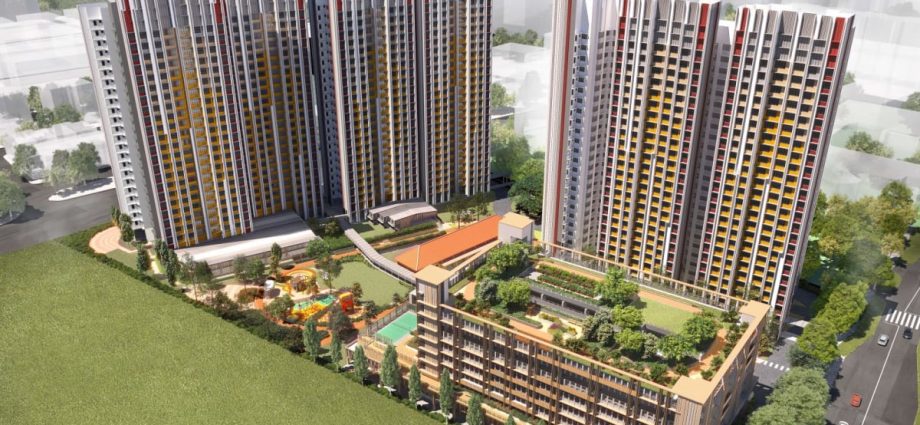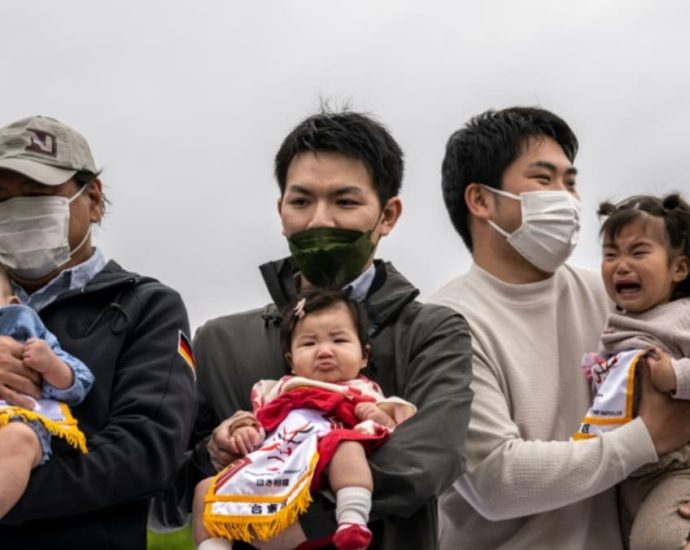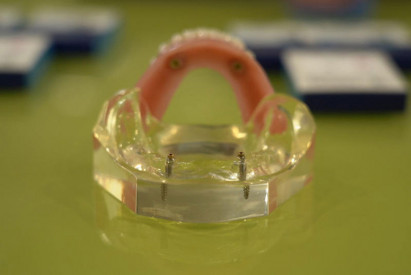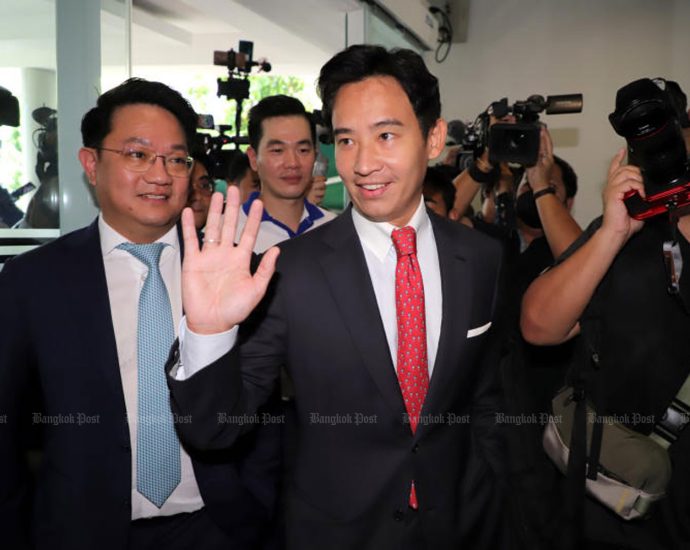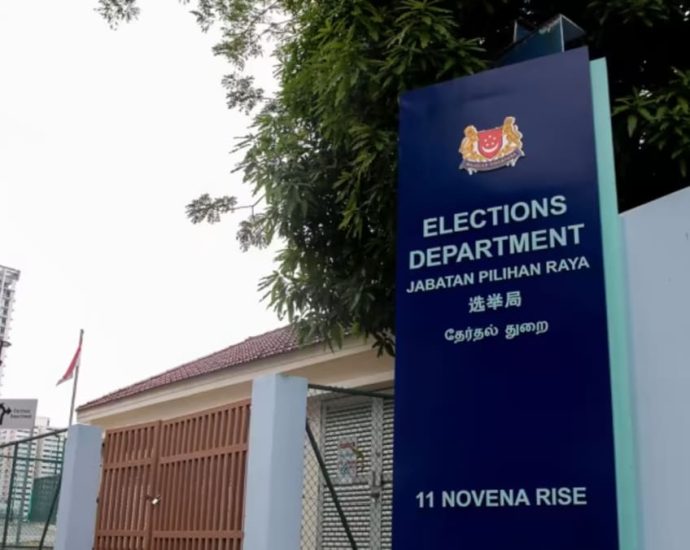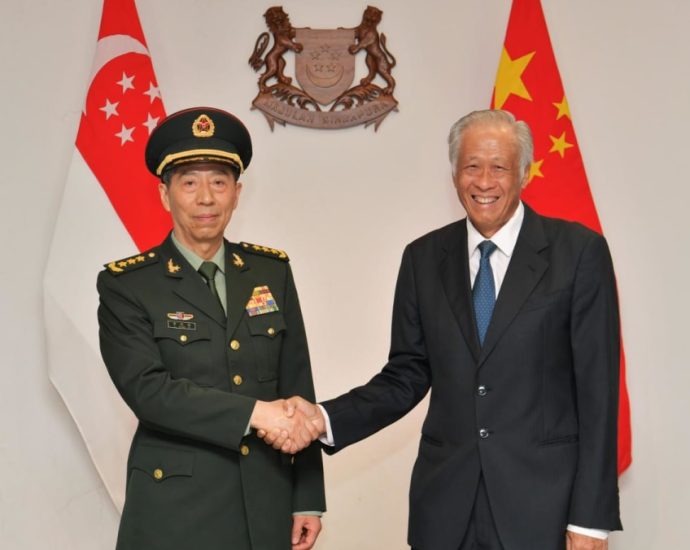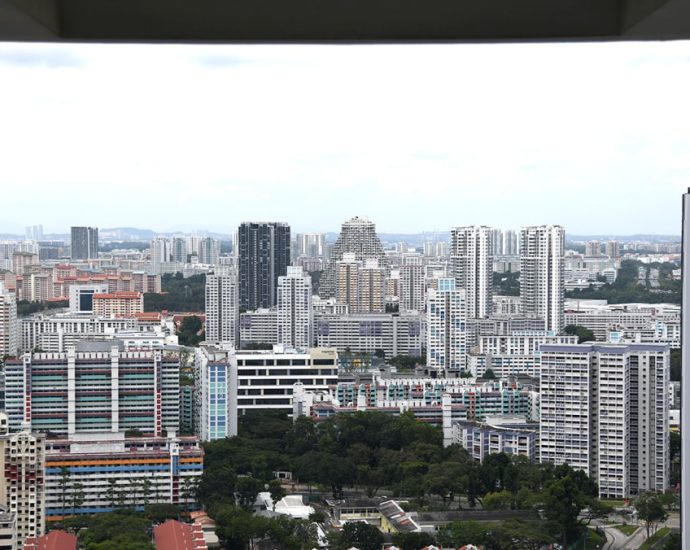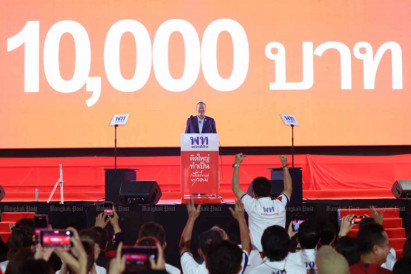HDB to extend deadline for May sales launch by 3 days due to system glitches
When the sales exercise was launched on Tuesday, some applicants aired their grievances on HDB’s Facebook page, writing that they were stuck in the portal’s virtual waiting room (VWR) for hours. Others complained that the application process for the HDB Flat Eligibility (HFE) letter was disrupted, with some encountering error messagesContinue Reading
Japan PM Kishida unveils US$25 billion plan to tackle birthrate crisis
TOKYO: Japan’s prime minister unveiled a US$25 billion plan on Thursday (Jun 1) to expand support for young people and families in a bid to help raise the country’s plummeting birth rate. Larger direct subsidies for those with children and more financial help for education and prenatal care are onContinue Reading
Bills cut with Thai artificial tooth roots
Locally made implants 10 times cheaper than imports, improving access to dental care

Thai researchers have developed an artificial tooth root, improving public access to dental implant services by bringing down the price of implants tenfold when compared to imported ones of a similar quality, the government says.
The artificial root named PRK (standing for Phraramkao in Thai or Rama IX in English) was jointly developed by the Dental Innovation Foundation under Royal Patronage, Chulalongkorn University, Mahidol University and Chiang Mai University, said government spokeswoman Rachada Dhnadirek.
PRK was chosen as the name in remembrance of His Majesty King Bhumibol Adulyadej The Great and his dedication to the betterment of dental and oral health of Thais, she said.
Thailand is one of only two countries in Asia – the other is South Korea — able to produce artificial roots locally that meet international standards, she said.
So far, more than 100,000 artificial roots have been produced and implanted in about 50,000 patients under the universal healthcare programme and other projects, she said. “We can produce about 100,000 of them a year,” she said.
Under the National Health Security Office programme, patients needing a dental implant receive one free of charge, said Ms Rachada.
The cost of an imported artificial root can be 40,000 to 50,000 baht, while a locally made one costs only about 3,000 baht. “In the past, only those with a lot of money could afford dental implants,” she said.
With better access to dental implant services, people’s quality of life has improved, as better dental and oral health allows them to eat better and have better overall health, she said.
Coalition figures question ânew electionâ scenario
MFP spokesman asks whether Deputy PM Wissanu is trying to influence senators
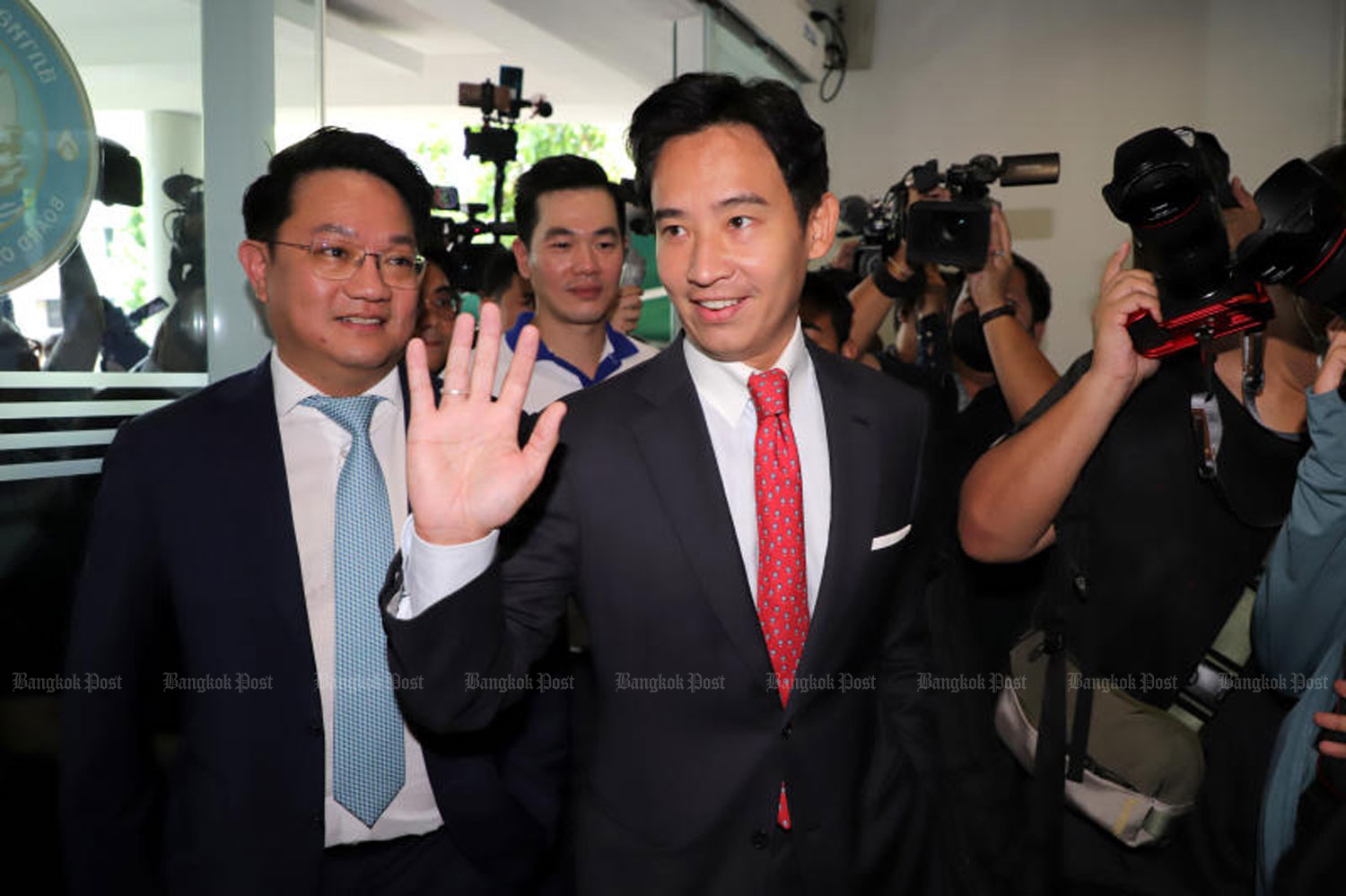
Two key members of the new coalition have questioned why caretaker Deputy Prime Minister Wissanu Krea-ngam raised the spectre of a new election if a shareholding complaint against Move Forward Party (MFP) leader Pita Limjaroenrat is upheld.
Move Forward spokesman Rangsiman Rome on Thursday reiterated that his party was well prepared to clarify the party leader’s shareholding in iTV Plc, saying the complaints against Mr Pita were politically motivated.
The MFP list MP-elect questioned why Mr Wissanu raised the scenario of a new nationwide general election if a ruling against against Mr Pita leads to the revocation of his prime ministerial eligibility, MP status and his endorsement of his party’s candidates in the May 14 polls.
“In making such remarks, You (Mr Wissanu) are trying to advise senators (how to vote), aren’t you?” Mr Rangsiman asked rhetorically. “This is a way to influence society and will make senators hesitate with hopes for a windfall.
“My question is whether the way you are doing it will create chaos in society or not. It’s tantamount to showing no respect for the intention of people who exercised their voting rights.”
He advised people not to attach much importance to the scenario outlined by Mr Wissanu. Although Mr Wissanu is known as a legal expert, he said, it did not mean that everything he said was correct.
“Instead of giving a press interview in this manner, it’s better for Mr Wissanu to suggest to Gen Prayut Chan-o-cha that he show some spirit and pack his belongings from Government House,” said Mr Rangsiman, referring to the caretaker prime minister.
Pressed by reporters on Wednesday, Mr Wissanu said how the details in the shareholding complaint against Mr Pita were interpreted would be a key factor in deciding his fate.
If a complaint targets Mr Pita’s eligibility to be an MP he could still be prime minister, because the prime minister is not required to be an MP, he said. If a complaint targets his prime ministerial qualifications, he could still be an MP.
A complaint could also question Mr Pita’s approval of Move Forward memberships, Mr Wissanu said. “In that case, there would have to be a new nationwide general election,” he said.
He was responding to questions about the possible scenarios if the case goes to the Constitutional Court. At the moment, the Election Commission is reviewing the case and if it decides he did not violate any rules, that is the end of the story.
Chusak Sirinil, a deputy leader of the Pheu Thai Party, also shrugged off Mr Wissanu’s remarks about a new election, calling such a scenario far-fetched.
Mr Pita endorsed election candidates in the May 14 polls in his capacity as his party’s leader, not as an MP or prime minister, said Mr Chusak, the head of Pheu Thai’s legal team. Mr Pita’s party leadership was legal and in line with the party’s regulations. It had nothing to do with any shareholding, said Mr Chusak.
Senator Seree Suwanpanont, however, on Thursday echoed Mr Wissanu’s remarks, saying there was possibility that a ruling against Mr Pita could cause the May 14 results to be nullified and a new vote held.
He contends that Mr Pita was aware that he was not qualified to be an MP because of the media shareholding. This meant that he endorsed the candidates despite the fact that he was not qualified, said the appointed senator.
In his view, the election should be nullified only in constituencies where there were MFP candidates, not all constituencies. However, some may argue that there must be new nationwide polls because votes that the MFP received on May 14 would affect votes of other candidates.
The case against Mr Pita involves 42,000 shares in iTV, an independent broadcaster founded in the 1990s. The shares were originally held by his father, who died in 2006. In his role as manager of the estate, Mr Pita tried to sell the shares but could not find a buyer.
He said earlier that he had explained the matter to the poll body before he was sworn in after the election in 2019.
iTV stopped broadcasting in 2007 and its licence was taken over by Thai PBS. It was delisted from the Stock Exchange of Thailand in 2014. It has not had any income from media activity for several years, beyond small sums from a subsidiary that rented out broadcasting equipment. However, its business registration remains active only because litigation over its concession fees is not yet concluded.
Registers of electors to be revised by Jul 31, Singaporeans can check names later in June
SINGAPORE: Prime Minister Lee Hsien Loong has directed the Elections Department (ELD) to revise Singapore’s registers of electors and to complete the revision by Jul 31, ELD said on Thursday (Jun 1). This comes ahead of a Presidential Election due later this year and a General Election that must beContinue Reading
Singapore, China ink pact to set up secure telephone line between defence chiefs
SINGAPORE: Singapore and China will work towards establishing a secure defence telephone link under a memorandum of understanding (MOU) that the two countries signed on Thursday (June 1). Under the MOU, the defence establishments in both countries will work towards setting up the secure line for high-level communications between theirContinue Reading
Woman sues brother over S$700,000 Toa Payoh flat on behalf of mother who has dementia

SINGAPORE: A woman sued her brother on behalf of her elderly mother who has dementia, over a S$700,000 flat in Toa Payoh that her mother bought but her brother has been making rental profit from.
In a judgment released on Thursday (Jun 1), the High Court ordered that the flat be sold and the proceeds divided equally between the mother and brother.
Madam Goh Siam Teow, 89, bought the flat in 2001 in joint names with her son, Mr Arthero Lim Tung Hee, 68.
Mdm Goh has two other children. Her eldest, Madam Lim Sai Hong, 70, is the one suing Mr Lim and is Mdm Goh’s litigation representative as Mdm Goh suffers from dementia and lacks the mental capacity to do so.
The joint tenancy of the flat was severed in 2020, with Mdm Goh and her son now holding the property as tenants-in-common in equal shares.
However, only Mr Lim lives in the flat currently. He has stayed there for 20 years and has been renting out two rooms in the flat, earning about S$1,500 a month that he uses for living expenses.
Even though Mdm Goh is a co-owner of the flat, she has not received any of the rental proceeds. She has been living with her eldest child, Mdm Lim, since 2003.
Justice Choo Han Teck said the only issue for him to determine was whether the property should be sold. Mdm Lim had asked for the sale proceeds to be divided equally between her mother and brother.
Mr Lim resisted this, saying that his sister lacked the power to apply for the sale as his mother’s litigation representative.
He said he was a stroke patient with no income and financial means to move out, because he would otherwise lose the rental he currently receives along with a place to stay.
His sister said that the sale of the property was necessary to meet the financial burden of her mother’s medical expenses, especially in the light of her worsening dementia.
Mdm Lim said her own savings are insufficient, and that she would use the sale proceeds for her mother’s long-term care.
Justice Choo noted that Mr Lim did not seem to have any physical or mental impediment in presenting his own case. He said he was a painter but stopped painting professionally after sustaining a stroke.
Justice Choo said Mr Lim’s case that he would not have sufficient resources for his own upkeep if the flat was sold had to be balanced against the best interests of his ailing and aged mother.
“She cannot be kept out of the property and have the respondent taking over the benefits of ownership entirely,” he said. “Nothing can be more inequitable. A sale of the property is the most equitable solution in the circumstances.”
Justice Choo noted that Mr Lim had support from welfare services, as well as a sum of at least S$192,000 in his Central Provident Fund once his CPF contribution from the sale of the flat is refunded.
DISPUTE IN DIVISION OF SALE PROCEEDS
Mdm Lim had asked for the sale proceeds to be divided equally, but her brother said he contributed more towards the purchase of the property.
He asked to get 60.31 per cent of the proceeds, with his mother receiving 39.69 per cent.
The funds used to buy the Toa Payoh flat came from the sale of another flat, which amounted to a sum of about S$398,000.
This sum was received solely by Mdm Goh at the time of the sale, but her son claims that he was entitled to half the proceeds, even though it was his mother who repaid the housing loan of S$241,000 to HDB to buy the Toa Payoh flat.
Justice Choo said the documents show only that Mr Lim contributed from his CPF accounts, while the cash payments were made by his mother.
Mr Lim had contributed only S$30,578.36 out of the housing loan quantum of S$64,000, with his mother paying the rest.
“In any event, the respondent’s failure to apportion to (his mother) the rental proceeds of the property, which exceeded S$400,000, since 2003 sufficiently settles the difference in contributions,” said the judge.
He said it was difficult to ascertain the breakdown of the financial contribution of both sides made some 20 years ago without proper documentation.
He ordered the flat to be sold and the proceeds divided equally between Mdm Goh and her son. Mdm Goh’s counsel asked for costs to be fixed at S$34,000, but Mr Lim said he was an unemployed stroke patient.
The judge said Mdm Goh had expended substantial legal costs to get an order to sell the flat, and ordered Mr Lim to pay costs of S$12,000, inclusive of disbursements.
Counting the costs of Cambodiaâs Belt and Road
China is Cambodia’s largest bilateral donor, lender, investor and trading partner. About a quarter of Cambodia’s total trade, a third of aid and two-fifths of foreign direct investment (FDI) and external debt involves China. Although Sino-Cambodian diplomatic and economic relations date back centuries, they have grown sharply over recent decades.
Economic relations have been strengthened by Cambodia’s active participation in the Belt and Road Initiative (BRI). Cambodia has been a vocal and enthusiastic proponent of the BRI since its inception in 2013.
In Cambodia, the BRI focuses mainly on loans to develop physical transport infrastructure, although it has also been indirectly associated with the development and transformation of the port city of Sihanoukville.
There are also investments in agriculture, energy and light manufacturing.
Participation in the BRI has costs and benefits. As a Least Developed Country aspiring to achieve upper middle-income status by 2030, Cambodia has embraced the BRI as an important instrument for addressing infrastructure deficits and reducing trade and transport costs.
The BRI has also supported the development of the power sector and agricultural diversification. This has raised productivity and led to trade expansion and high economic growth without compromising debt sustainability.
Rapid economic growth has increased wealth inequality but also raised overall living standards and produced sharp reductions in poverty. Between 2009 and 2019, poverty incidence (US$1 per day) almost halved from about 34% to 18%. These achievements derive from multiple factors but the BRI’s contribution cannot be denied.
The government has not undertaken a quantitative cost–benefit analysis of the BRI in Cambodia. The presence of BRI projects alongside massive socioeconomic gains suggests that the country has derived net benefit from the BRI.
There are also no concerns relating to “debt trap diplomacy” as debt levels remain below 40% of GDP. Still, there are risks associated with increasing reliance on just one country for economic and non-economic needs.
The BRI provided the transport and related infrastructure that facilitated the transformation of Sihanoukville from a sleepy, beachside resort town to a bustling entertainment center focused on gambling. The spill-over benefits of this rapid development to the local communities appear limited, while there is growing evidence of a rise in the cost of living, crime, corruption and various forms of inequality.

While the BRI was not directly involved in transforming Sihanoukville in this way, it did enable the conditions for its development. The real and perceived costs of these rapid transformations have caused dislocation and displacement among local communities.
Experts have concerns about the environmental and resettlement effects of BRI projects. The second BRI Forum in 2019 committed to mitigating problems through greater community consultation and stakeholder participation. It is still too early to tell if this consultation is really happening.
The forum also resolved to multilateralize the BRI by expanding the participation of regional, albeit still China-based, institutions. In Cambodia, this is occurring through a gradual shift in the financing of projects from Chinese state-owned banks and corporations — whose operations are sometimes opaque — to the Asian Infrastructure Investment Bank (AIIB), a multilateral development institution.
The AIIB’s role is set to increase rapidly and raise overall transparency, including contractual obligations.
But the extent to which AIIB’s involvement will also raise environmental standards and other safeguards remains unclear. This is because the AIIB adopts national environmental and other standards and policies — which may fall short of global benchmarks.
AIIB oversight of the implementation of environmental standards or resettlement policies may also involve national authorities rather than an independent party, which could be problematic.
How can Cambodia ensure that future projects are net positive?
The Committee for the Development of Cambodia reviews FDI proposals as part of the process of obtaining Qualified Investment Project (QIP) status and securing fiscal incentives. While some of the criteria used in determining QIP status involve assessing potential benefits to the local economy, the analysis lacks a comprehensive cost-benefit framework.
This is also true of the new Law on Investment adopted in 2021, which is mainly designed to facilitate FDI. Both the QIP and the Law on Investment ignore macroeconomic issues such as debt or investment sustainability and do not attempt to measure broader spill-over effects on the economy.

Cambodia needs a formal framework to assess the potential costs and benefits of all project proposals as part of a conventional approval process.
Cambodia could consider setting up a new Projects Review Board, which could operate as a non-statutory body with inter-ministerial and multi-stakeholder representation, to assess individual proposals in a purely advisory capacity to the government.
Technically competent staff who are capable of undertaking comprehensive cost-benefit analysis should support this project. A properly functioning Projects Review Board could help avoid the kinds of BRI projects that have left neighboring Laos in severe debt distress.
A transitional economy like Cambodia should be selective and strategic in its choice of projects if it is to grow in a sustainable and inclusive manner. It has done well so far but needs an independent assessment mechanism to ensure its success continues.
Jayant Menon is Senior Fellow at the ISEAS-Yusof Ishak Institute.
This article was originally published by East Asia Forum and is republished under a Creative Commons license.
Pheu Thai scraps B10,000 handout
Party cites high cost of welfare policies of coalition partner Move Forward

The Pheu Thai Party has scrapped the 10,000-baht handout it promised during the election campaign, saying the high cost of the Move Forward Party’s welfare programmes would make it unfeasible.
The two parties are the main partners in an eight-party coalition but Move Forward is setting the policy agenda because it won 10 more seats than Pheu Thai on May 14.
Pheu Thai continues to insist that it will not abandon the coalition and will support Move Forward leader Pita Limjaroenrat as the next prime minister, but the two parties are competing for the House speaker’s seat.
And while leaders of both parties have issued calls for unity, rumours continue to swirl that Pheu Thai would be part of an alternative coalition should the current arrangement collapse.
The Pheu Thai economic team on Thursday decided to scrap the 10,000-baht digital money handout because the welfare programmes planned by Move Forward would cost the state about 500 billion baht, said Phaophum Rojanasakul, the Pheu Thai deputy secretary-general.
“For the 10,000-baht digital wallet policy of the Pheu Thai Party, we still see a necessity to stimulate the national economy amid its weakness,” he said.
“But the policy would cost the state about 560 billion baht while the leading party’s welfare policies would require a similar amount of money. So, we must shelve this project.”
Pheu Thai had clear capital-oriented policies for high economic growth with equality, Mr Phaophum said.
Under its handout scheme, every Thai national 16 years old and over would be given a digital wallet with 10,000 baht to be spent within six months at businesses within a four-kilometre radius of where they live.
Srettha Thavisin, a businessman and Pheu Thai prime ministerial candidate, said during the election campaign that the handout would create an “economic tsunami” with positive ripple effects nationwide.
Move Forward, meanwhile, has promised a new and more inclusive welfare system with comprehensive coverage across all age groups.
Highlights include a 1,200-baht monthly child support grant and a 3,000-baht monthly pension for the elderly.
More than S$1.7 million lost by victims to holiday travel package scams
SINGAPORE: The police are investigating five men and two women for their suspected involvement in a series of holiday travel package scams. At least 48 victims were cheated of a total sum amounting to at least S$1.7 million (US$1.2 million), the police said on Thursday (Jun 1). Between March toContinue Reading

